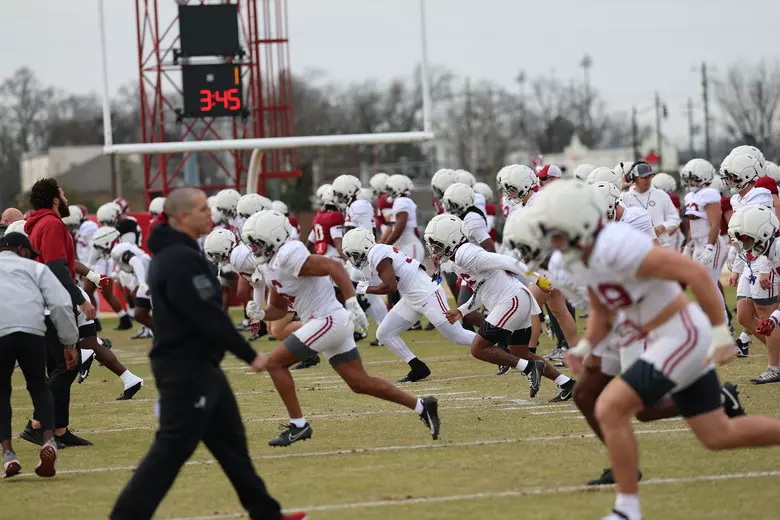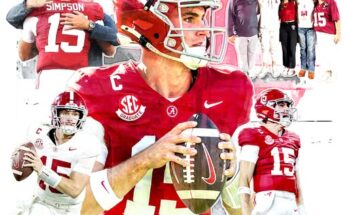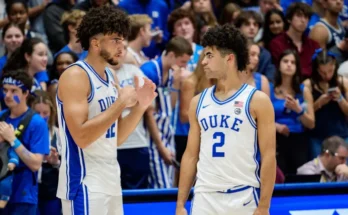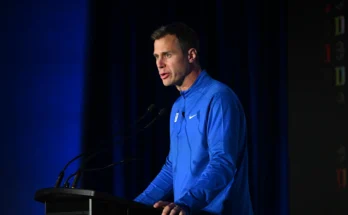Oklahoma Softball Brings Relentless ‘Underdog’ Energy to First-Ever SEC Tournament Appearance After Years of National Dominance
Oklahoma softball is no stranger to the national spotlight. With a trophy case filled to the brim and an aura of invincibility built over the course of a historic dynasty, the Sooners have established themselves as the gold standard of collegiate softball. But as they prepare for their first appearance in the SEC Tournament, a new and unfamiliar energy surrounds the powerhouse program: the underdog mentality.
It might sound paradoxical—Oklahoma, the reigning national champion and winner of seven national titles, calling itself an underdog. Yet for head coach Patty Gasso and her players, that self-imposed identity isn’t about external validation. It’s about mindset, hunger, and the refusal to get comfortable at the top.
The Sooners enter the SEC Tournament not as the default favorite, but as the new kid on the block. After dominating the Big 12 for over a decade—claiming 14 regular-season titles and eight tournament crowns since 2010—Oklahoma now steps into the nation’s toughest softball conference. The Southeastern Conference has long been a gauntlet of elite programs, and OU isn’t being greeted with a hero’s welcome. They’re being tested immediately.
From Tennessee to Florida, from Georgia to LSU, the SEC is stacked with top-tier talent, experienced coaches, and rabid fanbases. Every team in this league has been circling the date when Oklahoma shows up. Every road trip has become a postseason-caliber showdown. For the Sooners, the weight of expectation remains—but now it’s accompanied by a unique edge.
“We’re not being handed anything here,” Gasso said recently. “We’ve had to earn every bit of respect. That’s what makes this season exciting. That’s what brings out the fire in this team.”
This isn’t just coach-speak. Oklahoma has faced adversity this season that few of its recent predecessors have had to navigate. The dominance that once came easily now requires a deeper reservoir of resolve. Close games have become more frequent. Opposing pitchers have been bolder. The home run celebrations aren’t as early or as often. In short, the margin for error has narrowed, and OU is responding in the only way it knows how: with fight, focus, and a reminder to itself that nothing is promised.
For players like senior captain Tiare Jennings, the transition has been more mental than mechanical. A three-time All-American and one of the most feared hitters in the country, Jennings has experienced both the euphoria of winning and the pressure of sustaining greatness. Her role as a leader has been crucial in reshaping the team’s identity without compromising its standards.
“We don’t look at what we’ve done in the past,” Jennings said. “We’re in the SEC now. It’s a clean slate. Every team is tough, every pitcher is nasty, and every game feels like it could go either way. That’s where we find our edge. We don’t act like we’ve already arrived—we play like we’re still climbing.”
It’s a sentiment echoed throughout the clubhouse. Whether it’s underclassmen trying to make their mark or veterans returning for one final ride, the shared language is one of urgency and unity. This year’s squad may be the most battle-tested OU team in recent memory. They’ve been knocked down. They’ve been challenged in ways they weren’t in the Big 12. And each time, they’ve responded by doubling down on their identity.
That identity is being molded daily in the SEC, where the competition has sharpened every facet of OU’s game. The Sooners have had to adjust to deeper scouting reports, more aggressive base running, and ballparks that erupt with energy at every Oklahoma miscue. There’s no room for autopilot. Every inning requires purpose.
This relentless environment has helped Oklahoma embrace something they hadn’t been in years: the unfamiliar. While the Sooners have consistently been the hunted, now they are also the ones learning. Learning what it takes to win in a different context. Learning to adapt to styles that the Big 12 didn’t regularly offer. Learning to carry the weight of past success while building something entirely new.
Patty Gasso has been open about how invigorating the challenge has been. For a coach who’s won virtually everything there is to win, the move to the SEC has re-lit a competitive spark. Gasso has described the season as “refreshing” and “rejuvenating,” not because the road is easier—but because it’s harder.
“When you’re in a place where you’re not automatically respected, you have to find different ways to assert yourself,” Gasso said. “It’s made me a better coach. It’s made our team more complete. We’ve been uncomfortable, and that’s a good thing.”
Indeed, discomfort can be a great teacher. The SEC gauntlet has not only toughened Oklahoma’s approach but also humbled it. It has forced OU to lean on depth, to find contributors up and down the lineup, and to win games with more than just firepower. Players like Jayda Coleman, Kinzie Hansen, and Jordy Bahl (before her transfer) helped establish the culture, but now new faces are taking on pivotal roles—and thriving under pressure.
The emergence of new pitching arms has been critical, as the Sooners have had to adjust to SEC-style offenses that emphasize power and execution. The bullpen, long a strength for Oklahoma, has been tested in high-leverage scenarios more often this year. Every out matters. Every pitch has a consequence.
The result? A team that feels more complete heading into the postseason.
As Oklahoma prepares for the SEC Tournament, they’re carrying more than just a No. 1 ranking or a legacy of success. They’re carrying a sense of mission. The team knows that titles aren’t won on reputation. They’re earned with grit, with timely hits, with smart baserunning, with diving catches, and most of all, with belief. And perhaps there’s no greater motivator than being underestimated—even if only in perception.
Inside the locker room, the Sooners talk often about “chasing greatness.” But this year, greatness looks different. It isn’t just about lifting another trophy—it’s about proving that they can win on a new stage, with new challenges, and with a renewed identity.
That’s why the “underdog” mentality has stuck.
It’s not a gimmick. It’s not a talking point. It’s a mindset born out of necessity. In the SEC, no team—no matter how decorated—is given a free pass. Oklahoma knows that. And they’ve welcomed it.
The conference has made the Sooners sharper, hungrier, and more grounded. It’s reminded them that legacy doesn’t protect you from pressure. That every team you face is good enough to beat you. And that the difference between falling short and rising above is the willingness to evolve.
So when Oklahoma takes the field at the SEC Tournament, they won’t be playing with entitlement. They’ll be playing with something deeper. A chip. A fire. A collective determination to rewrite the narrative.
For once, Oklahoma doesn’t mind being seen as something other than the favorite. In fact, they’re thriving in it.
And if history has taught us anything, it’s that a locked-in Sooner squad, armed with belief and something to prove, is as dangerous as ever.



